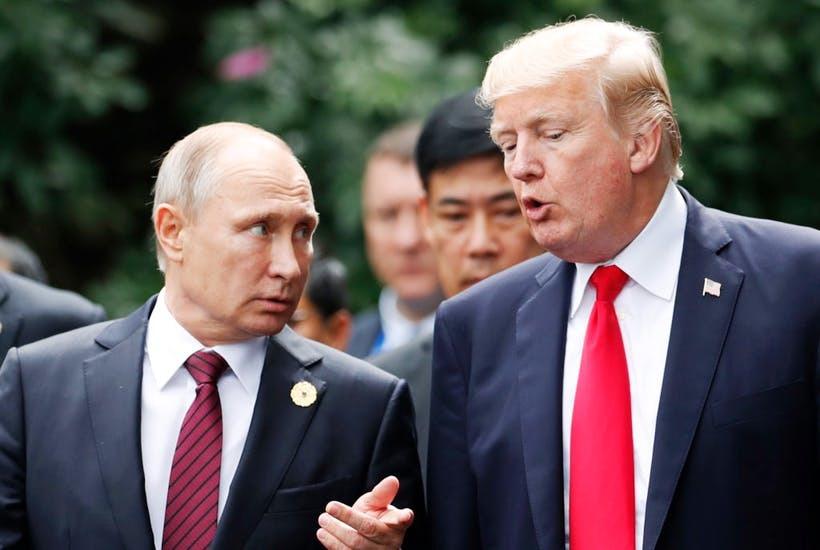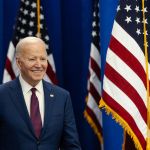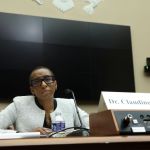“President Trump ordered the expulsion of 60 Russian officials from the United States and ordered the closure of the Russian consulate in Seattle, the White House announced Monday” was how NPR started its report on the surprise story that started the week in Washington, and most outlets followed suit. In this way, the press emphasised the White House’s preferred narrative of the news. Donald Trump hasn’t uttered a word on Twitter, his favorite medium of communication, about the attempted assassination in Britain of a former Russian spy with a Soviet-era nerve agent. Neither did he bring it up during his phone call to Vladimir Putin last week, in which he congratulated the Russian president on his recent reelection. Yet the White House would have us believe that the president is the driving force behind the punishment for “Russia’s use of a military-grade chemical weapon on the soil of the United Kingdom,” as a statement had it.
This will make it difficult for Trump later to question Russia’s role in the attempted murder, as he’s so often questioned its role in hacking and other activities meant to disrupt America’s 2016 presidential election. He seems eager to take Putin’s word at face value, and Putin has denied that Russia played a part in the British incident—so expect Trump eventually to toss off a remark, in person or online, suggesting that there’s no proof Russia was involved. The Russian ambassador to the United States, Anatoly Antonov, made a strong statement protesting the move, but he was careful to point fingers at the U.S. government rather than the president himself; he even noted the “counterproductive” action went “against the telephone conversation between our two presidents.”
The administration’s move was made at the same time 16 European Union governments made similar moves, and this explains the decision better than any sort of “pivot” on the president’s part against Putin. Officials in the State Department and elsewhere might have realised they had the perfect opportunity to act in concert with Europe for a change—just as they’re trying to get Europe to give a bit on, for example, the Iran nuclear deal.
As Paul Saunders, executive director and director of the U.S.-Russian relations program at the Center for the National Interest said, “Explaining why the Trump administration does things is not a ground to tread on too lightly, it’s a difficult challenge. In this situation, it was clear there were a bunch of allies moving in this direction.” Add to that the likelihood that the United Kingdom shared with the United States “persuasive information” that indicated Russian involvement and the great desire most in Washington have to penalise Russia for its election interference, Saunders astutely noted, and you have a likely explanation for the disciplinary action that seemed to surprise so many. George Beebe, director of intelligence and national security at the Center for the National Interest, added, “It makes for good domestic politics right now to take a hard line against the Kremlin.”
The Russia experts made their comments at a timely event, a previously scheduled lunch panel the think tank held Monday on “A New Confrontation?: U.S.-Russia Relations after the 2018 Russian Election.” As CFTNI president and CEO Dimitri Simes joked, they could have dispensed with the question mark. Simes, who was just in Moscow to watch the election, got serious very quickly. “A new Cold War in many respects is very different from the old one,” he said. This one has fewer rules, for example. “And more emotions on both sides—increasingly hostile emotions on both sides.”
These Russia hands were less willing than the administration is to put the blame for the attempted murder of Sergei Skripal and his daughter directly at Putin’s feet—but they weren’t shy about declaring he had some role. “There’s no question he has a general responsibility here, whether he ordered the attack or not,” Beebe said. “He’s responsible at a minimum for presiding over a system that makes this sort of attack possible.”
In the question and answer portion of the panel, the Latvian ambassador to the United States brought up another question of responsibility—that of Russia more generally. Andris Teikmanis noted that many commentators see Putin as an authoritarian whose policies aren’t necessarily those of the Russian people themselves. Speaking earnestly, the ambassador dismissed such arguments. “They should be treated as being responsible for Putin’s policy because they support it,” he said. Earlier, Simes had informed the small audience that 80 per cent of Russians voting abroad—including those in London—voted for Vladimir Putin a week ago. “If our policy of integration and reaching out to the Russian people were working, we would see the opposite,” Saunders said. Post-Soviet U.S. policy on Russia has, Saunders declared, been “a disaster. It’s been awful.”
The Trump administration’s Monday move didn’t earn high marks from them either. The Kremlin will retaliate and expel the same number of Western diplomats from Russia, they pointed out. “We’re the loser when it comes to equal exchanges of personnel,” Beebe said. Michael Kofman, a senior research scientist at CNA, immediately agreed: “We are the loser every single time.” That’s because Russia finds it much easier to continue its intelligence work after the loss of personnel than Western countries do. Wait—perhaps Donald Trump, days after talking on the telephone to Vladimir Putin, was responsible for a policy that could end up shooting America in the foot after all.


















